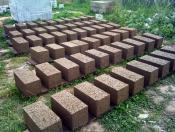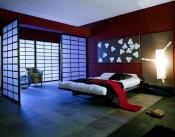Search
Login
Recommended
Can a double-glazed window protect against noise, which double-glazed window will do it better than others
Given the good soundproofing properties of masonry and studying the real noise figures in the apartment, it is not difficult to guess that the residents of houses located along busy highways suffer from excessive decibels precisely due to poor-quality windows. Even the thinnest plastered brick wall holds up more than 10 dB more noise than a window characterized as soundproofing. It follows logically: noise annoying a person outside the window requires improving the sound insulation of window blocks.
Content
- Replacing old wooden windows and airflow problems
- Vent valves
- The main factors affecting the sound insulation characteristics of windows video video video
- Double-glazed window unit significantly improves sound insulation
- How efficient is the filling of glass pane chambers with gases
- Should pay attention
Replacing old wooden windows and airflow problems
Those who had to live in a house built in Soviet times not by hearsay know how poorly the wooden windows functioned in them - they did not have to talk about any tightness, moreover, they let in not only street noise, but also cold air, their had to stick on for the winter.
Replacing them with plastic windows with double-glazed windows allowed us to quickly achieve a significant reduction in noise level - this was achieved due to tightness.

But in the end, the residents did not feel much joy from the installation - it was planned to receive fresh air during the construction of old buildings through windows, ventilation ducts were provided only in the kitchen, in the bathroom and toilet. Installation of sealed windows in all rooms led to the appearance of stuffiness in the room. Feeling the need for fresh air during a night's rest, people going to bed opened a window for airing. All the same noise penetrated into the room with fresh air, and windows were installed to combat it.
Modern construction provides for forced ventilation in the apartments. In such houses, windows with noise protection in fact provide fairly reliable protection against external noise.
Vent valves
Unfortunately, most people have so far been forced to live in houses built according to projects that meet underestimated sanitary requirements. In this situation, installing ventilation valves with a high level of noise protection may be a good option. They protect against excess decibels and provide sufficient freshness of air in the room. They are installed separately, in specially created openings in the external walls or mounted directly in the frames of window blocks. It is difficult to say that this option is widespread, not all construction companies offer their installation.
The main factors affecting the sound insulation characteristics of windows

Studies show that the main components of soundproofing windows are:
-
the maximum total thickness of the glass unit
-
glass unit tightness
-
increase the distance between the glass in the glass
-
the use of glasses of different thicknesses
-
use of special glass - triplex
-
breaking large glasses into fragments with the help of imposts.
-
When deciding which double-glazed window to choose, pay attention to the above points and the quality of fittings.

The first single-chamber double-glazed windows that appeared in our country had the formula 4x16x4, where 16 is the distance between the glasses expressed in mm, and 4 is the thickness of the glasses themselves in mm. After them two-chamber double-glazed windows and three-chamber appeared. They were advertised, not only as having higher thermal insulation properties, but also as providing improved sound insulation.
In fact, the noise isolation indicators in packages of any chamber depend more on the number obtained by summing the thickness of each of the glasses with which the glass is equipped. For example, sound insulation performance will be the same when using packages 4x412x4x4x4x4 and 6x20x6mm.

The use of glasses of the maximum possible thickness will contribute to a significant improvement in sound insulation, we are talking about 6 and 8 mm glasses. To improve the performance in the manufacture of two-chamber packages, they resort to the displacement of the inner glass to the extreme - this helps to some extent avoid an increase in the penetration of noise of resonant frequencies. Nevertheless, with any design of a double-glazed window it has its own resonant frequencies causing a decrease in the quality of sound insulation.
This practically does not affect the quality of protection against the noise of a city apartment - a broadband spectrum is characteristic of street noise. But if near the house there are sources of low-frequency noise, such as places of movement of trucks, construction sites or industrial enterprises, then it is advisable to analyze the characteristics of its sound insulation and noise composition in the area where it will be used before choosing a double-glazed window.
Recently, in order to improve sound insulation performance, they are increasingly resorting to the use of triplex, which is a laminated glass that can limit the penetration of medium-frequency waves and high-frequency sounds. Replacing each of the monolithic glasses with triplex allows increasing the sound insulation index by 3 or 4 dB, but at the same time, the material thickness should not be less than 9 mm, and the film layer should be double, an inlet layer made of acoustic resin can also be used.
Double-glazed window unit significantly improves sound insulation
Significant changes in the direction of improvement are provided by a double-glazed window, the glasses in which are located at the most remote distance from each other - it can reach from 40 to 50 mm. But sometimes resorting to the equipment of windows checked in ancient times by the classical coupled frames where the distance between glasses reached 57 mm. If thick glasses were used, for example, 6 mm, then, with sufficient tightness, the obtained sound insulation index reached 35 dB, which exceeds the same indicator for a modern double-glazed window, where the distance between the glasses is 16 mm.

To improve sound insulation, they also use the installation of a window block of two frames: the outer with one glass of 8 or 20 mm, the inner with two, 6 or 8 m thick. In this case, the thickness of the block is more than 120 mm, the sound insulation index will be quite high, equal to 46 db
How efficient is the filling of glass pane chambers with gases

Contrary to the promised improvements in the quality of sound insulation from filling the windows of the glass with inert gases, there is no significant change in performance when applied. The maximum changes that can be obtained are from 1 to 4 dB, which in reality does not always justify the funds spent on these events. A greater positive effect can be obtained by preferring profiles with a large number of chambers and a thick reinforcing profile.
Should pay attention!
Equally important for good noise isolation is the quality installation of the window unit and the absence of acoustic gaps in the window opening area, which pose a serious threat to noise protection and are difficult to detect. Such a negative phenomenon can be caused not by plastering, but simply by wired plasterboard slopes; plastic is not the best option for use for such purposes.

It is not necessary to hope that this defect can be corrected by mounting foam - its soundproofing properties are very low. With such a window opening device, noise will penetrate the apartment around its perimeter. A frame that is too small for a given aperture will worsen the situation — it is deliberately made to secure it — so that there are no problems during installation. As a way out of the situation, we can offer the dismantling of drywall slopes and the performance of plastering the surface with a thick layer of cement mortar, followed by its decorative treatment.






